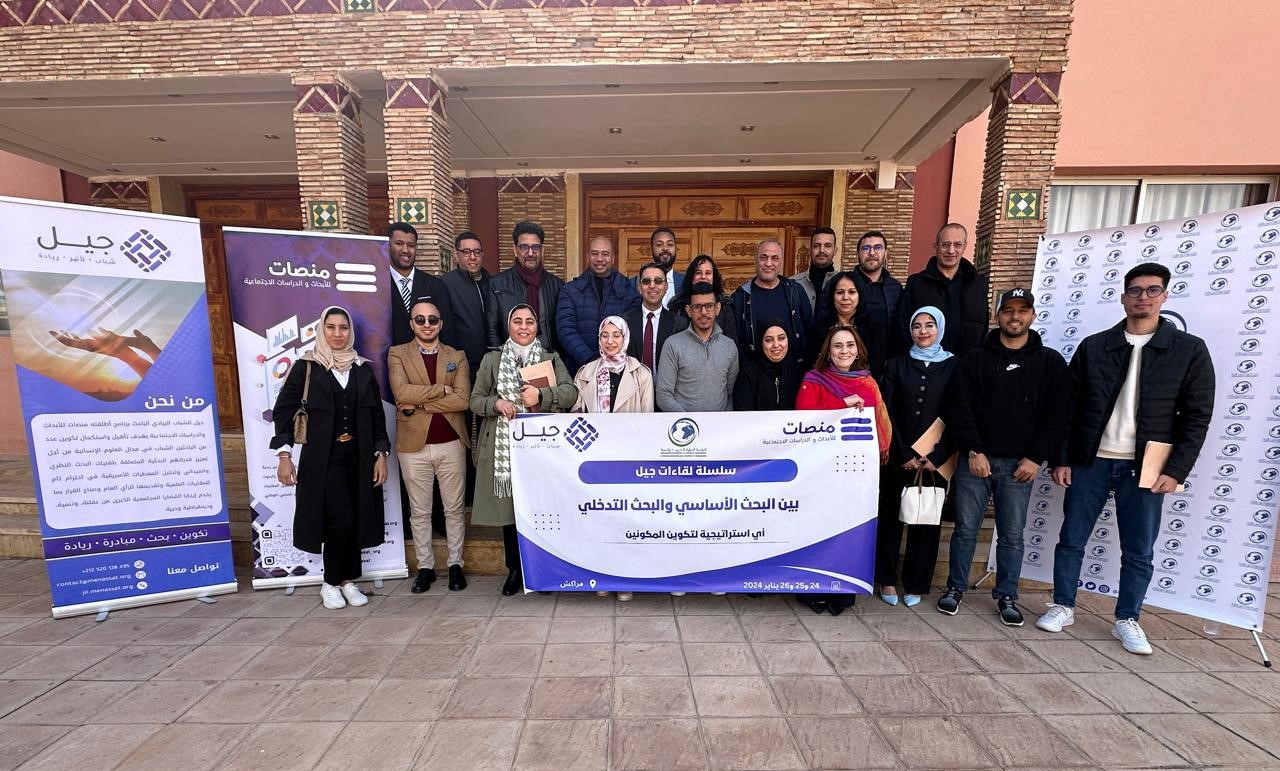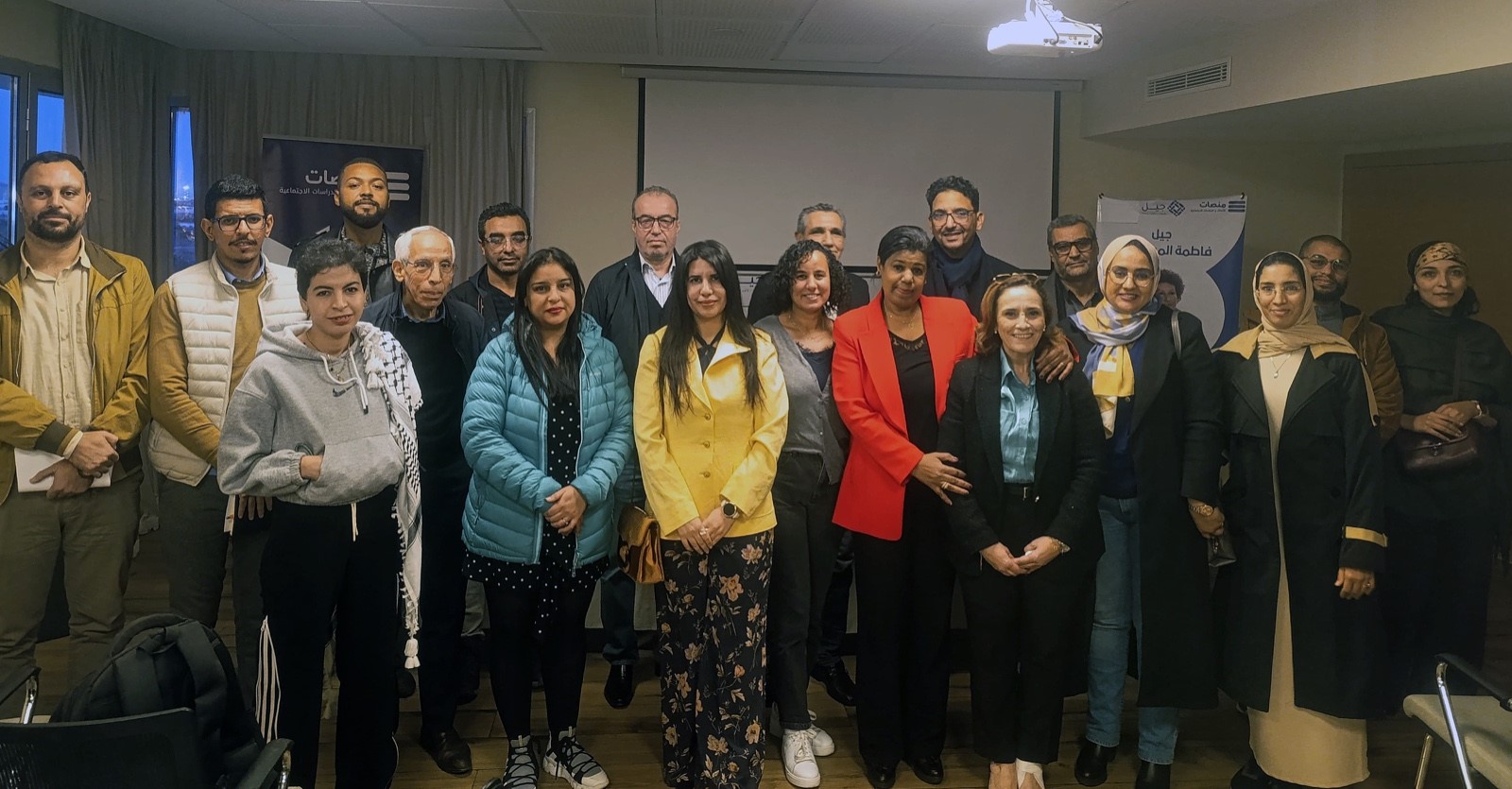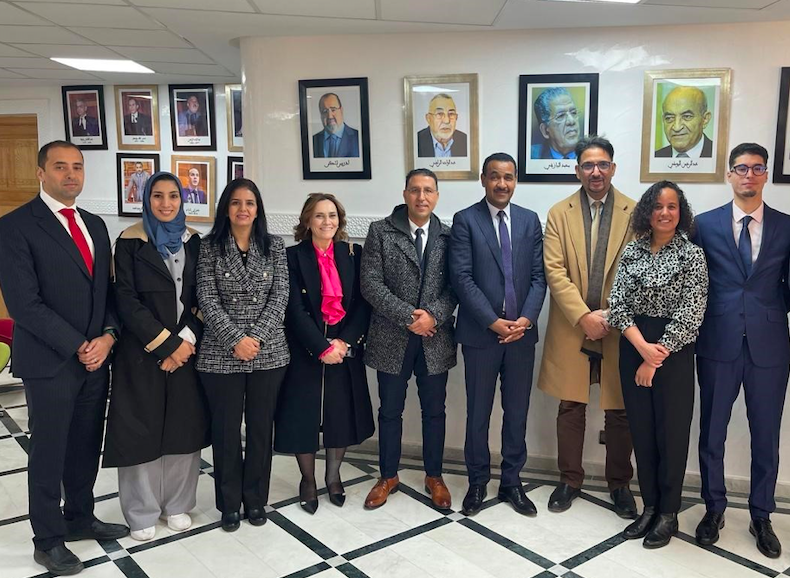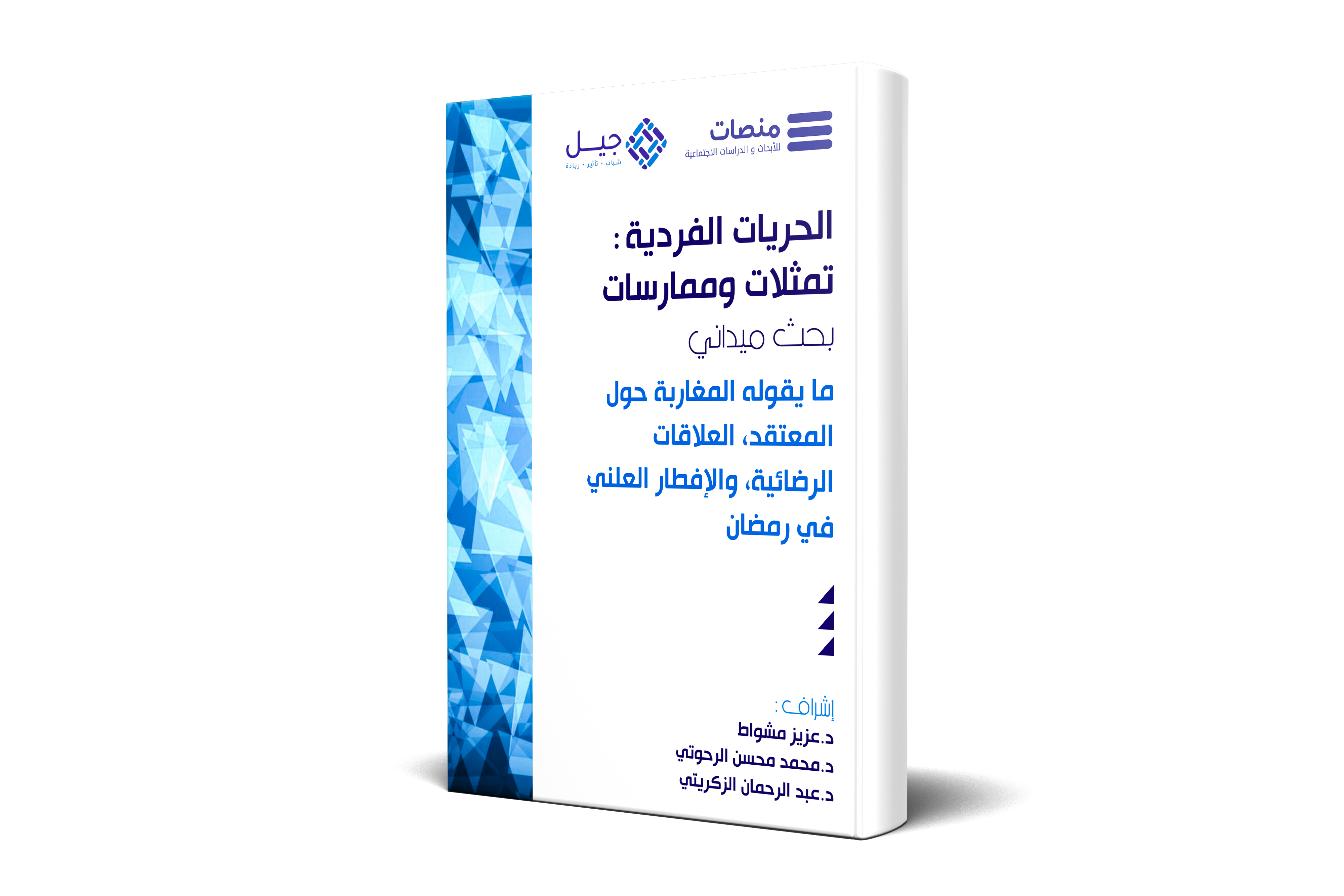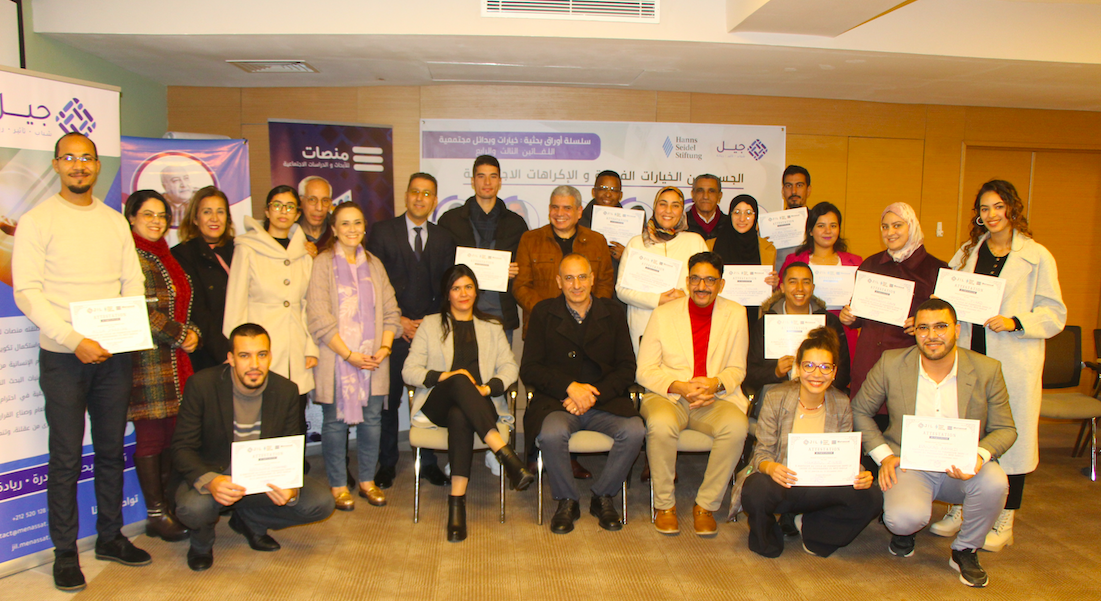
In partnership with the German Hans Seidel Foundation, the Menassat Center for Research and Social Studies successfully concluded the third and fourth JIL Conference, "Societal Choices and Alternatives," held at Novotel Mohammedia on December 17–18.
The event brought together prominent institutional, legal, and academic figures, including Fatima Zahra Barassat, former parliamentarian of the Party of Progress and Socialism (PPS) and member of the Parity and Equality Forum, as well as Mohammed Hassani El Idrissi, lawyer at the Casablanca Bar. Aziz Mechouat, Director of Menassat, along with Mouhsine Mohammed Rahouti and Abderrahmane Zekriti, both academic professors and members of Menassat’s Scientific Committee, also took part. Participants from the second cohort of the JIL Program, along with journalists, civil society actors, and researchers, were in attendance.
On the first day, Menassat presented its qualitative research report on Individual Freedoms, a study previously conducted by the center. Mouhsine Rahouti provided insights into the section on bodily autonomy, a theme that closely aligns with the two policy papers featured in the conference.
The first policy paper, “The Exception Becomes the Rule: The Impact of Legislative Exceptions on Individual Freedoms in Morocco – The Case of Child Marriage,” was presented by Zineb Makboul, a laureate of the JIL Mohammed Sabila Program. Co-authored by Jihad Hamdani, Yassine Alla, and Hamza Mirouad, the paper examined the prevalence of child marriage in Morocco, highlighting the legal loopholes that enable the practice and its profound impact on bodily autonomy.
The second policy paper, “The Hindered Body: Between Individual Freedom and Collective Responsibility,” was presented on the final day by Ikram Mouna, alongside fellow JIL laureates Milouda El Harati, Salma El Moatassim, and Jaafar Meroun. Their research tackled the ethical and legal tensions surrounding mandatory COVID-19 vaccination in Morocco, questioning the state’s authority to impose public health measures on individual bodies.
The JIL Conference once again served as a vital platform for discussing pressing societal challenges, bridging the gap between research, policy, and public debate. Through critical inquiry and rigorous field research, Menassat continues to shape discourse on democracy, freedoms, and human rights in Morocco.

